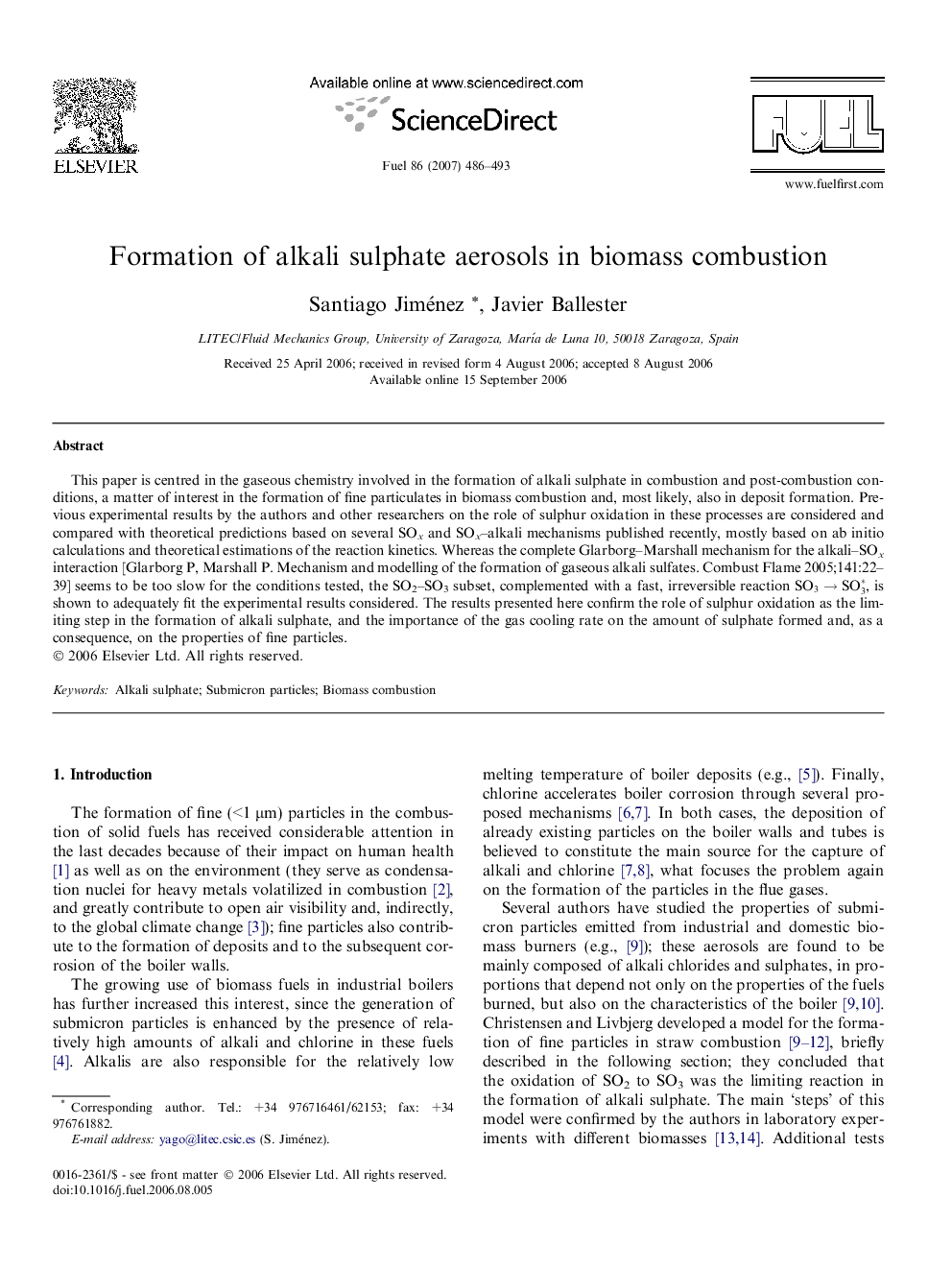| Article ID | Journal | Published Year | Pages | File Type |
|---|---|---|---|---|
| 207920 | Fuel | 2007 | 8 Pages |
This paper is centred in the gaseous chemistry involved in the formation of alkali sulphate in combustion and post-combustion conditions, a matter of interest in the formation of fine particulates in biomass combustion and, most likely, also in deposit formation. Previous experimental results by the authors and other researchers on the role of sulphur oxidation in these processes are considered and compared with theoretical predictions based on several SOx and SOx–alkali mechanisms published recently, mostly based on ab initio calculations and theoretical estimations of the reaction kinetics. Whereas the complete Glarborg–Marshall mechanism for the alkali–SOx interaction [Glarborg P, Marshall P. Mechanism and modelling of the formation of gaseous alkali sulfates. Combust Flame 2005;141:22–39] seems to be too slow for the conditions tested, the SO2–SO3 subset, complemented with a fast, irreversible reaction SO3→SO3∗, is shown to adequately fit the experimental results considered. The results presented here confirm the role of sulphur oxidation as the limiting step in the formation of alkali sulphate, and the importance of the gas cooling rate on the amount of sulphate formed and, as a consequence, on the properties of fine particles.
